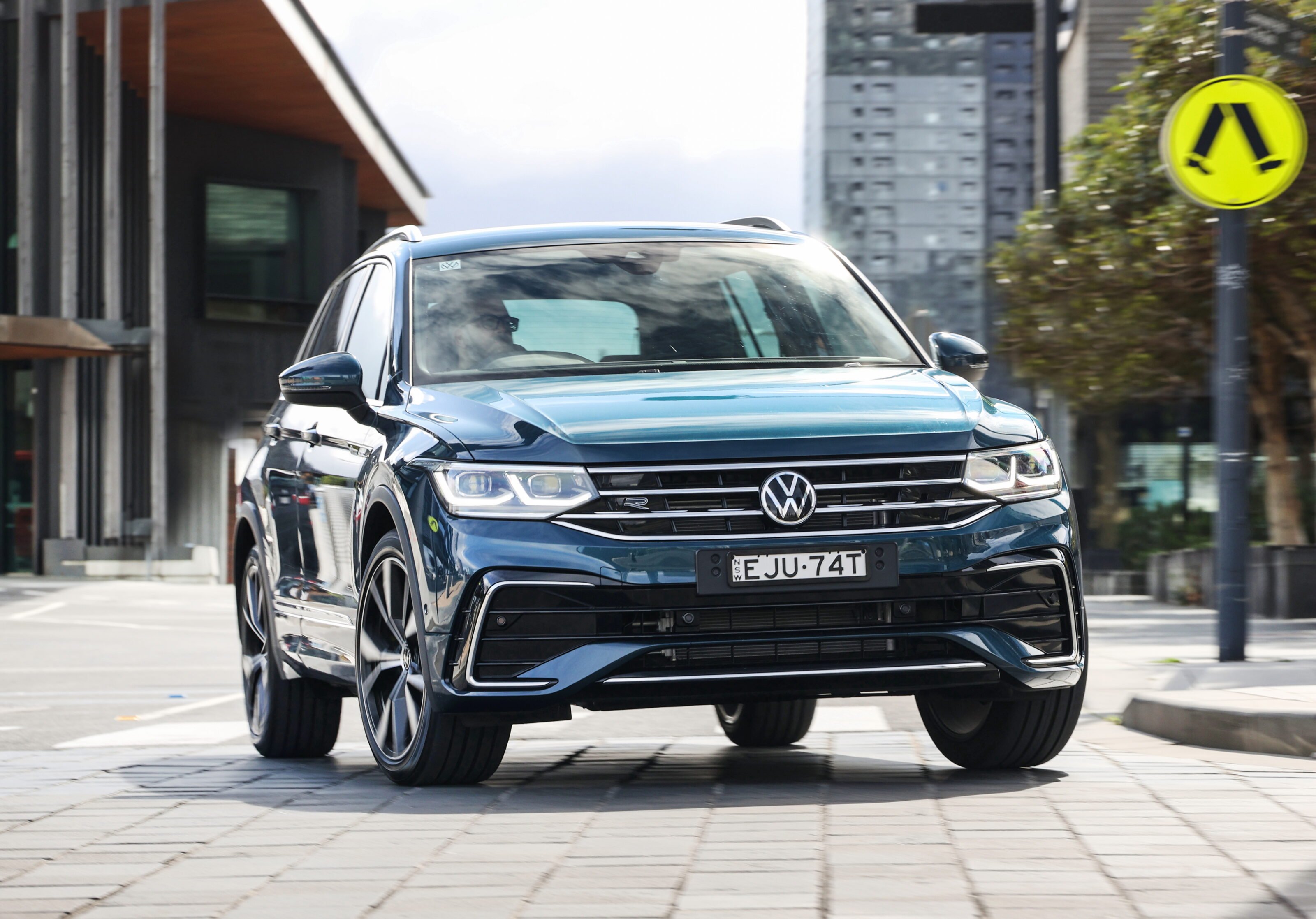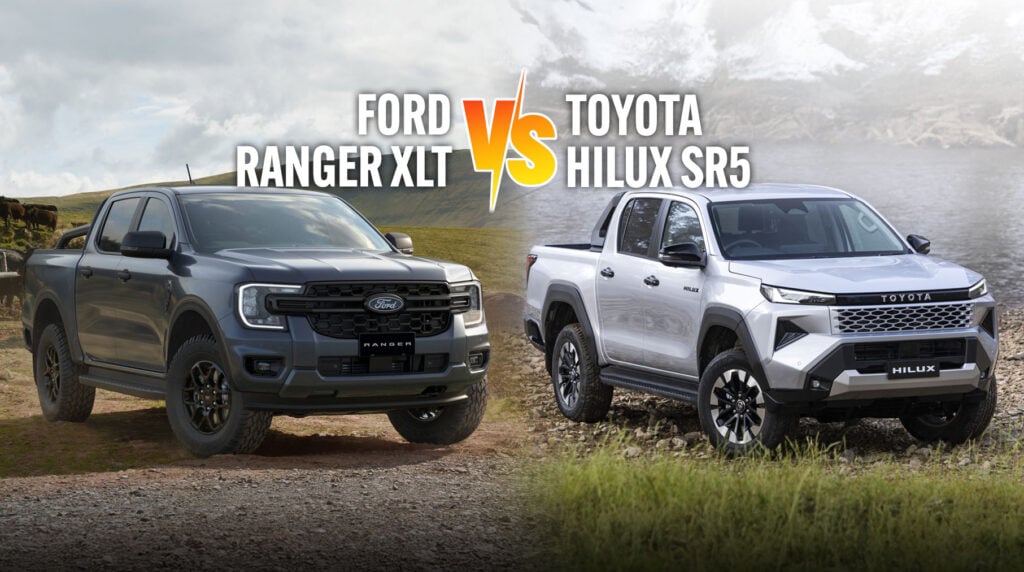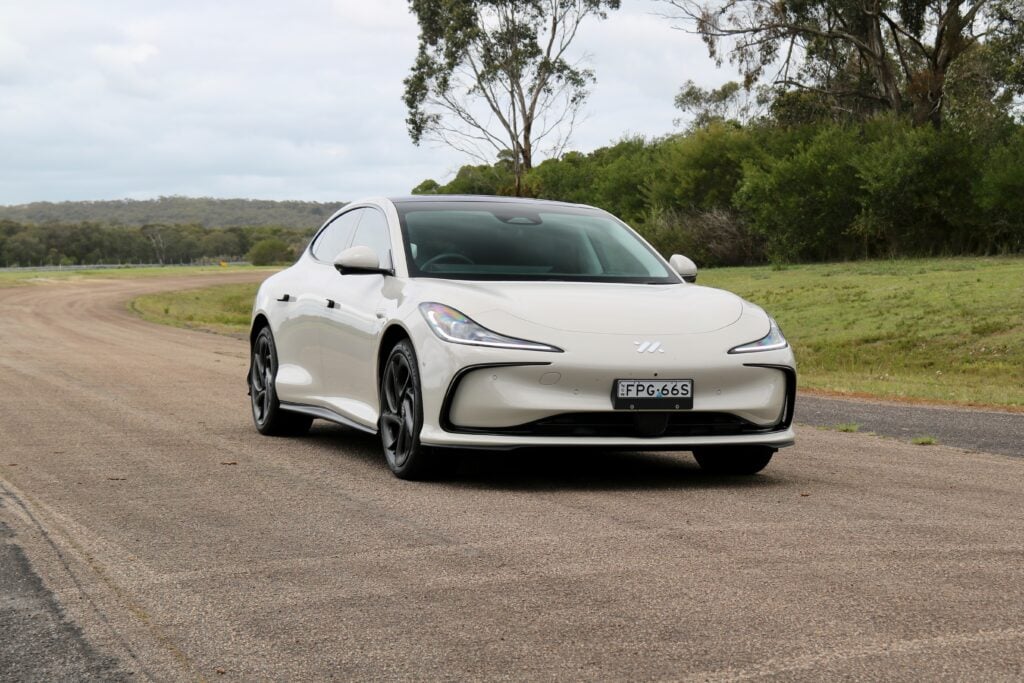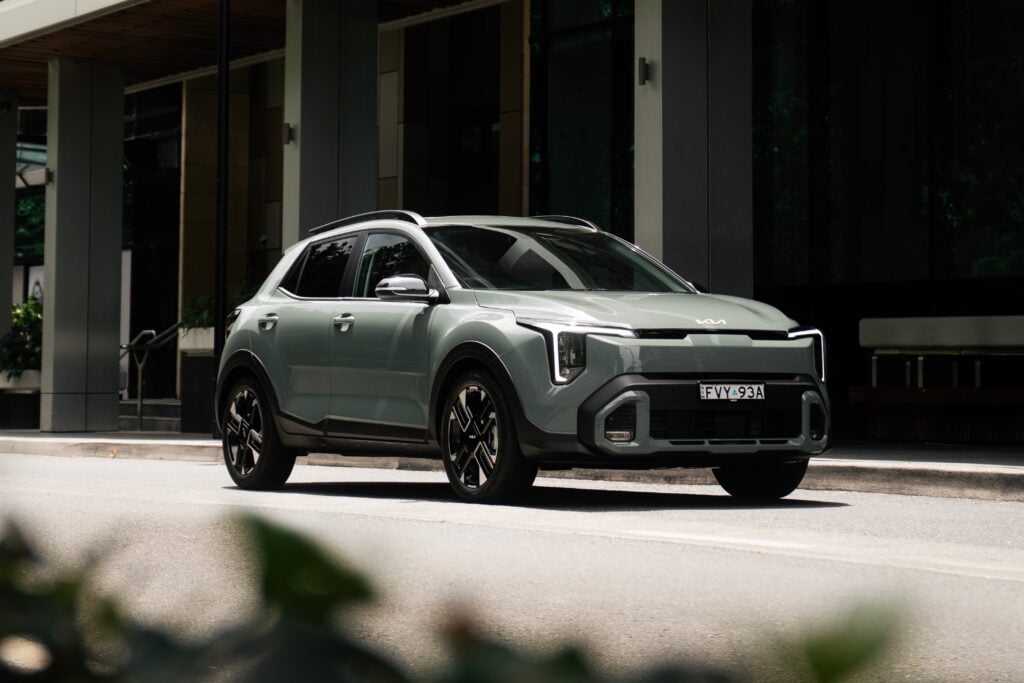Score breakdown
Things we like
- Looks great
- Performance and handling
- Big boot
- Cabin fit, features and finish
Not so much
- Fiddly touchpad controls
- Ride can be a little firm
- Fuel consumption
The Volkswagen Tiguan medium SUV underwent a facelift earlier in 2021 that brought sharper exterior design elements, new driver technologies, refreshed engines and new variant badges.
Excluding the stretched seven-seat Tiguan Allspace, the 2021 Tiguan range comes in three spec grades – Life, Elegance and R-Line – with a choice of three petrol engines and one diesel. Pricing is book-ended by the entry-level 110 TSI Life that retails for $39,690 and the turbo-diesel 147 TDI R-Line for $55,290 (both before on-road costs).
The range-topping R-Line spec is also available with this very punchy 162 TSI variant that, as its badge specifies, packs 162kW of power along with 350Nm of torque.
Pricing and features
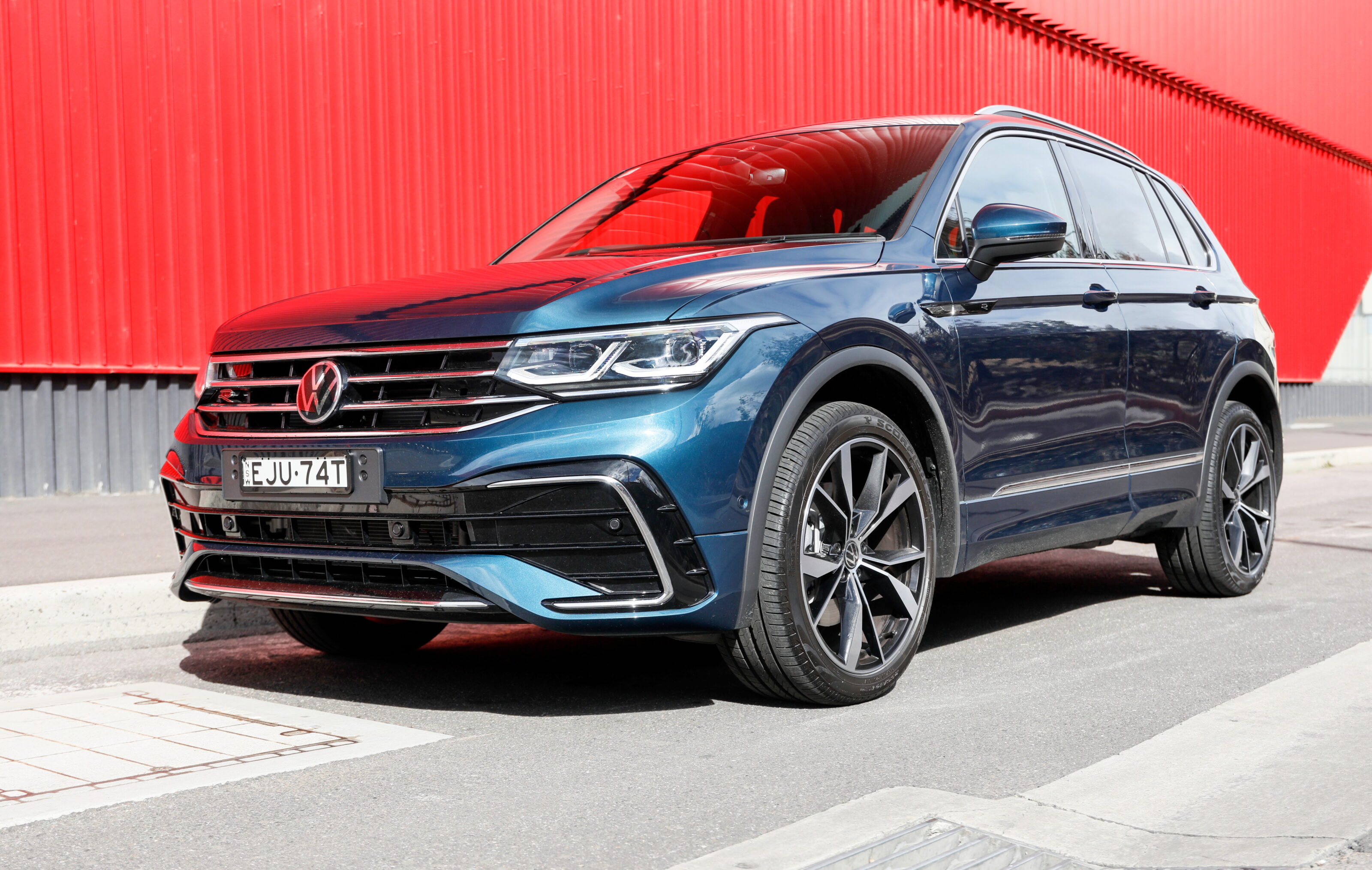
Paying $53,790 for the Tiguan 162 TSI R-Line won’t leave you wanting for much, and comes with much of the features found in the $50,790 mid-spec 162 TSI Elegance (both before on-road costs), such as:
- Digital Cockpit Pro driver display
- 9.2-inch touchscreen
- Wireless Apple CarPlay/Android Auto
- Three-zone climate control
- Vienna leather upholstery
- Power-operated and heated front seats
- Heated steering wheel
- Power-folding and heated door mirrors
- Powered tailgate
- Matrix LED headlights
- LED tail-lights with dynamic indicators
- Ambient interior lighting
- Adaptive chassis control.
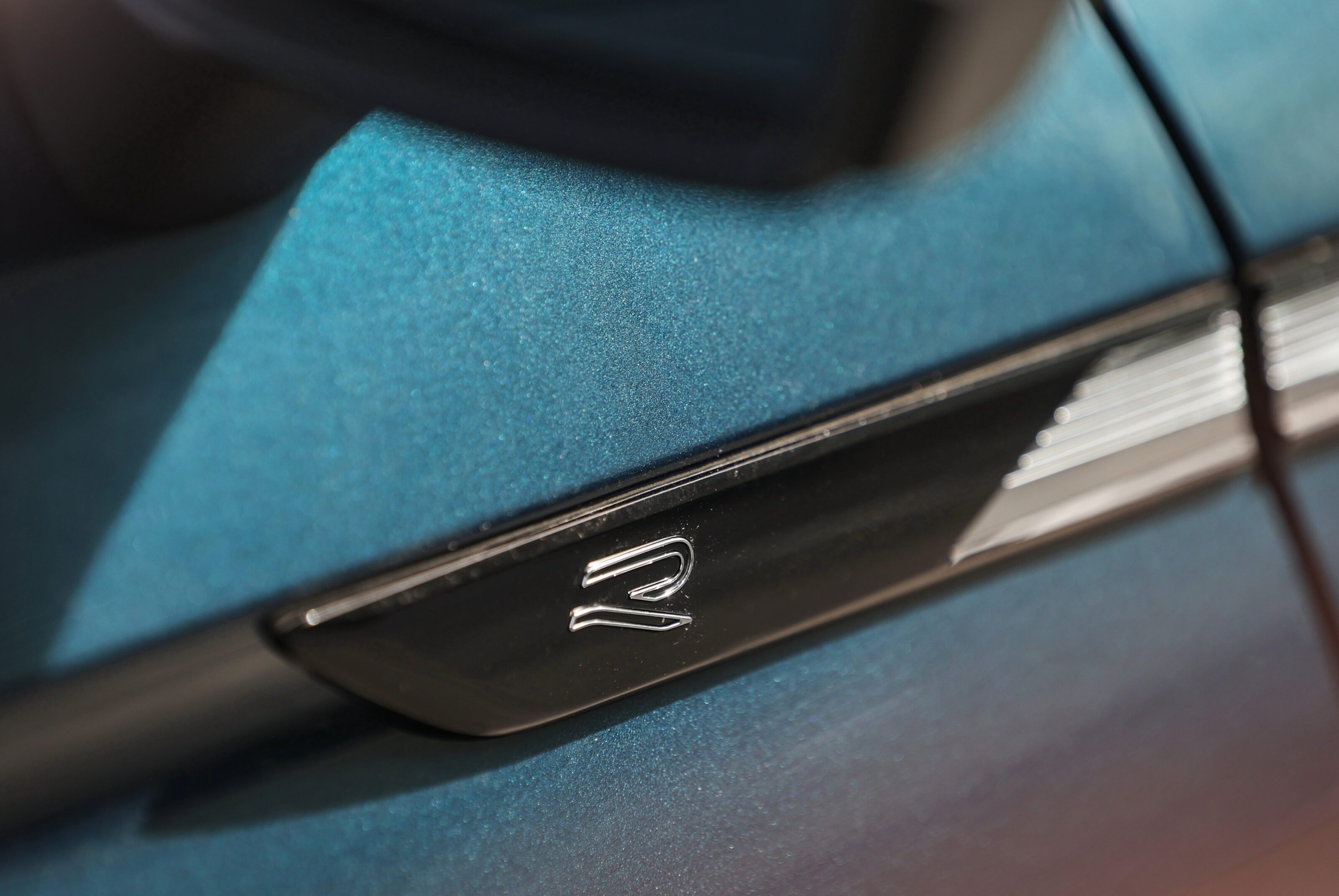
Paying $3000 more for the R-Line spec brings a bunch of aesthetic enhancements such as bigger 20-inch alloy wheels (compared to 19s on the Elegance), R-Line steering wheel with haptic touch controllers, black headliner, stainless steel sports pedals, R-Line trimmed upholstery and a body kit comprising bolder front and rear bumpers, side skirts and a rear spoiler.
You can also up-spec the Tiguan R-Line with metallic/pearlescent paint for $800, a panoramic sunroof for $1500 and the Sound and Vision package that for $2500 brings a head-up display, surround-view parking monitor and Harman Kardon premium sound system.
Safety
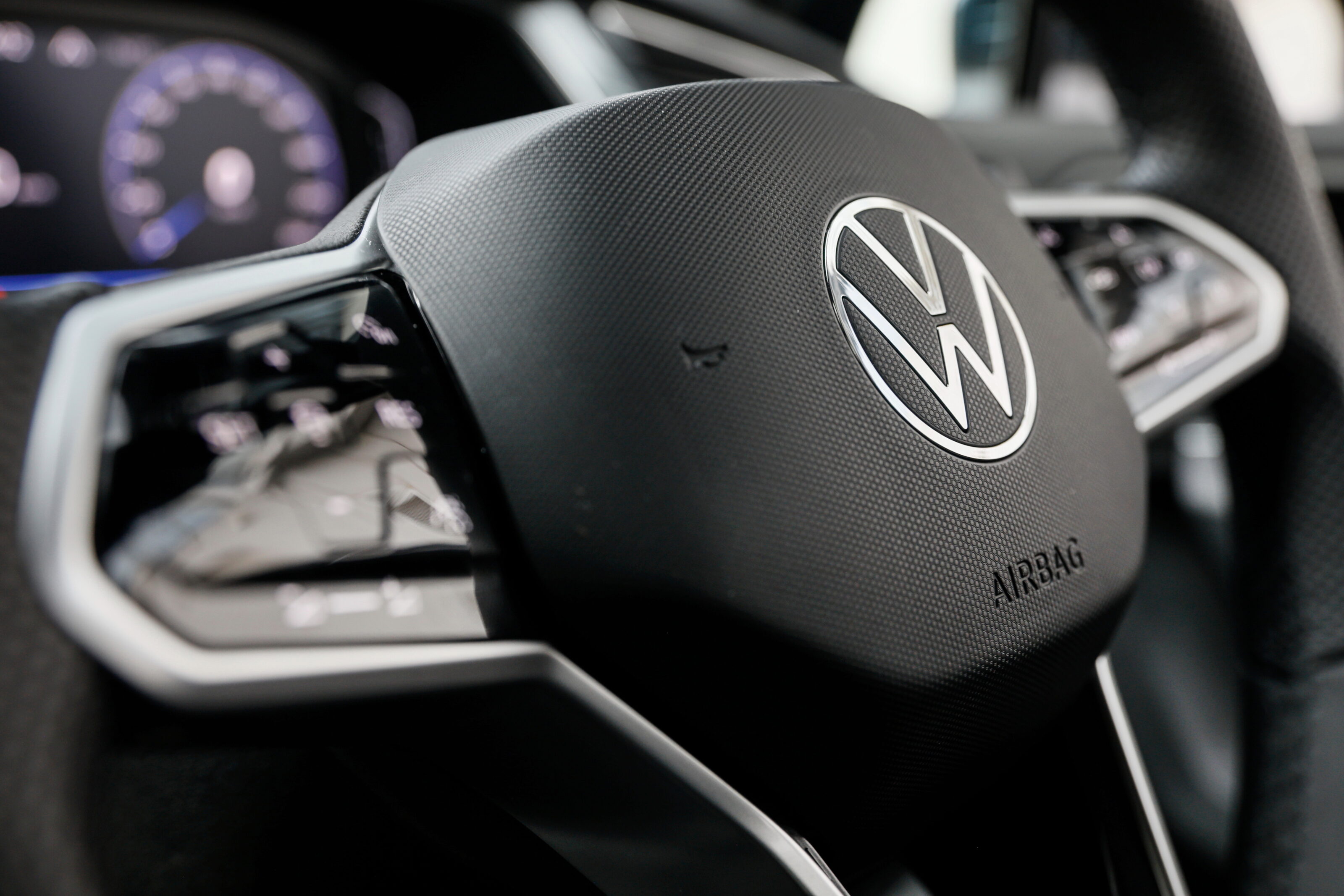
The current-generation Tiguan earned a five-star ANCAP safety rating in 2016, scoring a 96 per cent adult occupant protection rating.
Each update has brought new safety features and the 2021 model comes standard with IQ.Drive driver assistance technology, which includes safety features such as Travel Assist (VW’s moniker for semi-autonomous adaptive cruise control and lane-keeping assist technology), autonomous emergency braking with pedestrian monitoring, emergency assist, blind-spot monitor, park assist, parking sensors at both ends and driver fatigue detection.
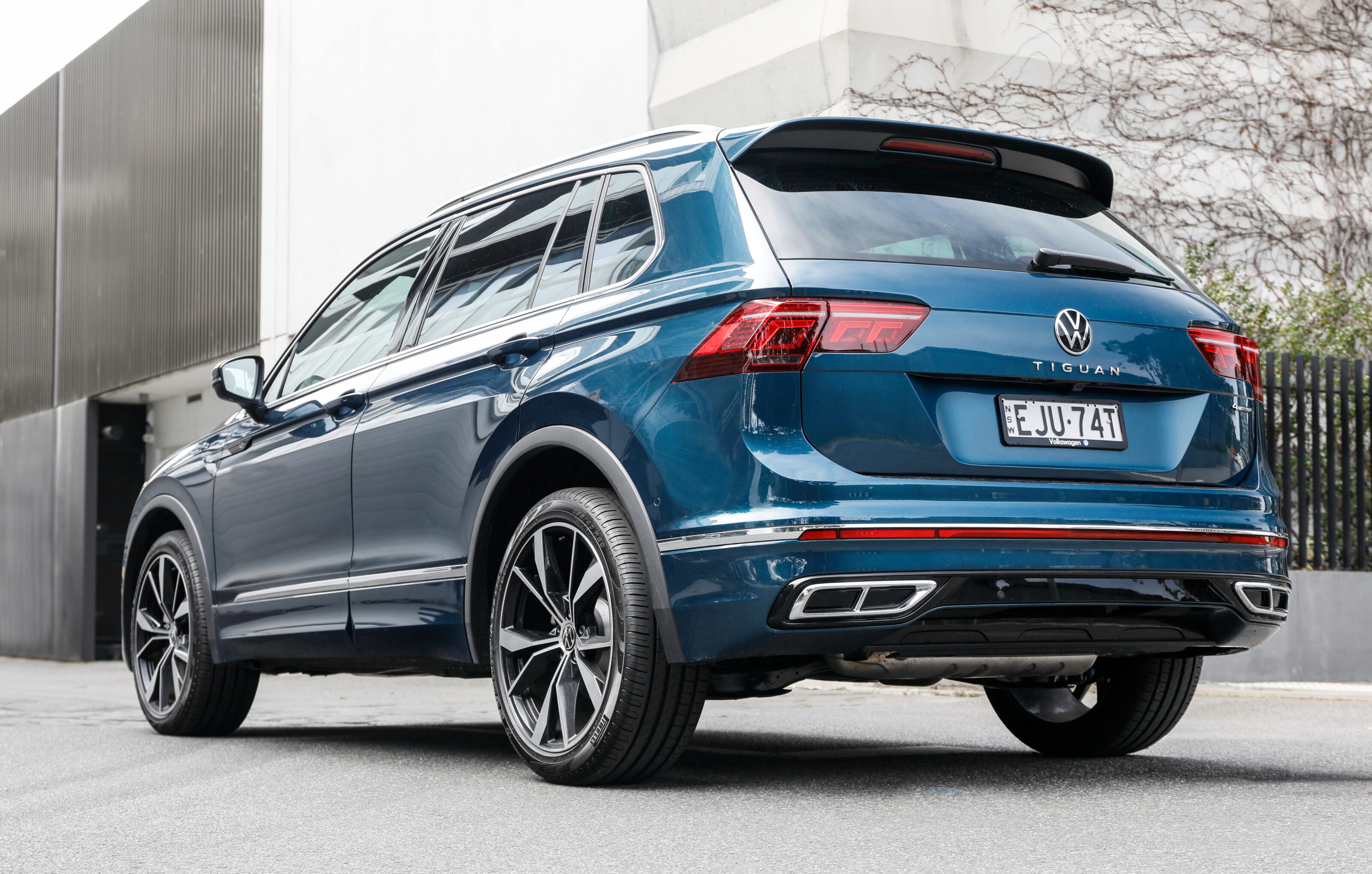
Passive safety includes six airbags and 360-degree proactive occupant protection, which can detect situations in which there a potential accident kicks in, such as when the AEB activates. When this occurs it automatically tightens the front seat belts, closes the windows and (if fitted) the panoramic sunroof as a precautionary measure.
Space and comfort
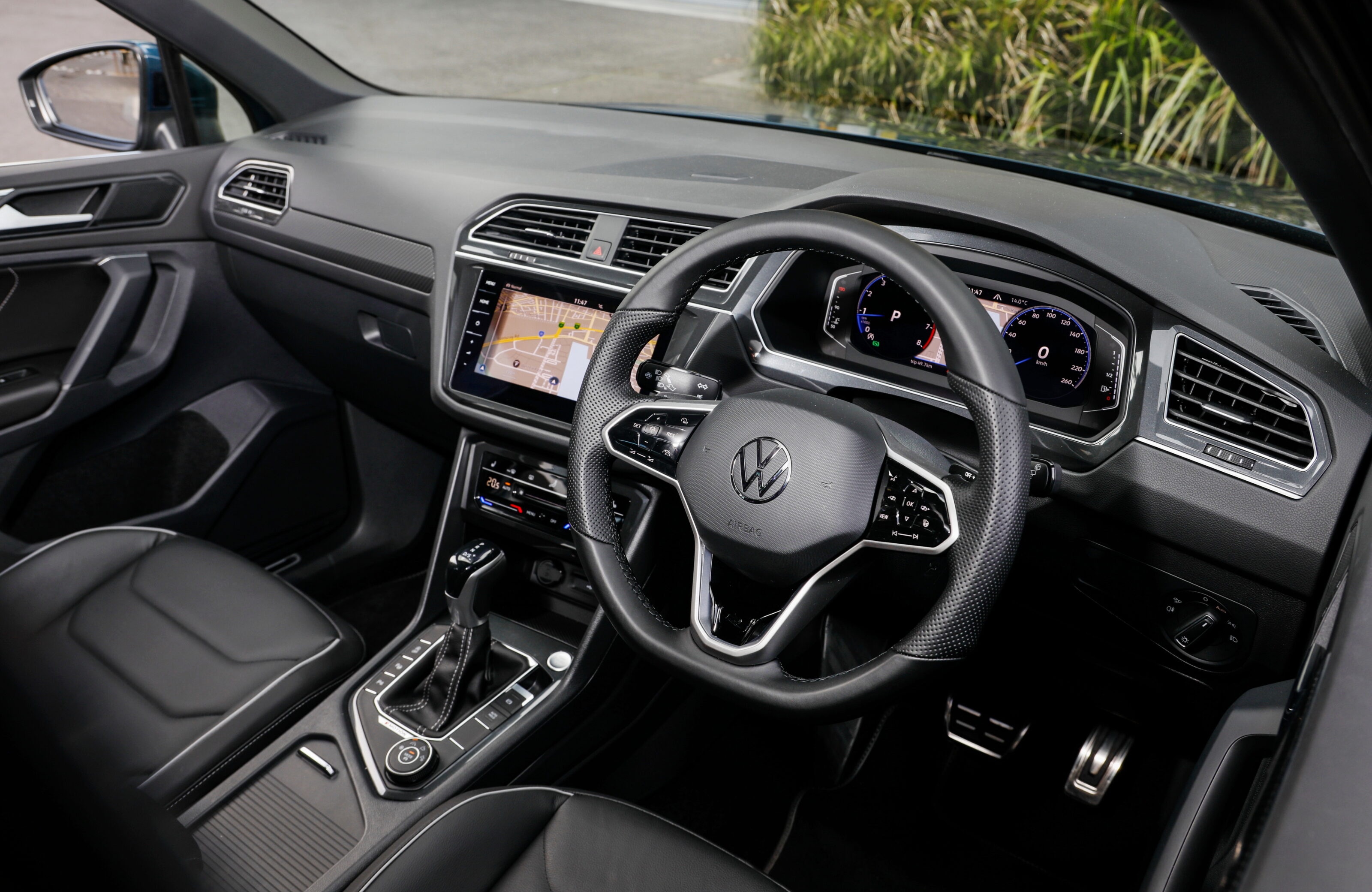
The Tiguan’s interior design looks fresh and clutter-free and everything is intuitively laid out.
Fit and finish are good and there are plenty of soft touches including the top of the dashboard, and top half of the door cards.
The dashboard has that crisp look that’s typical of Volkswagen models, and while the trim is rather monochromatic, the high-resolution graphics on the 9.2-inch touchscreen and 10.25-inch digital dashboard displays provide plenty of visual interest.
Each update has brought new safety features and the 2021 model comes standard with Volkswagen’s IQ.Drive driver assistance technology.
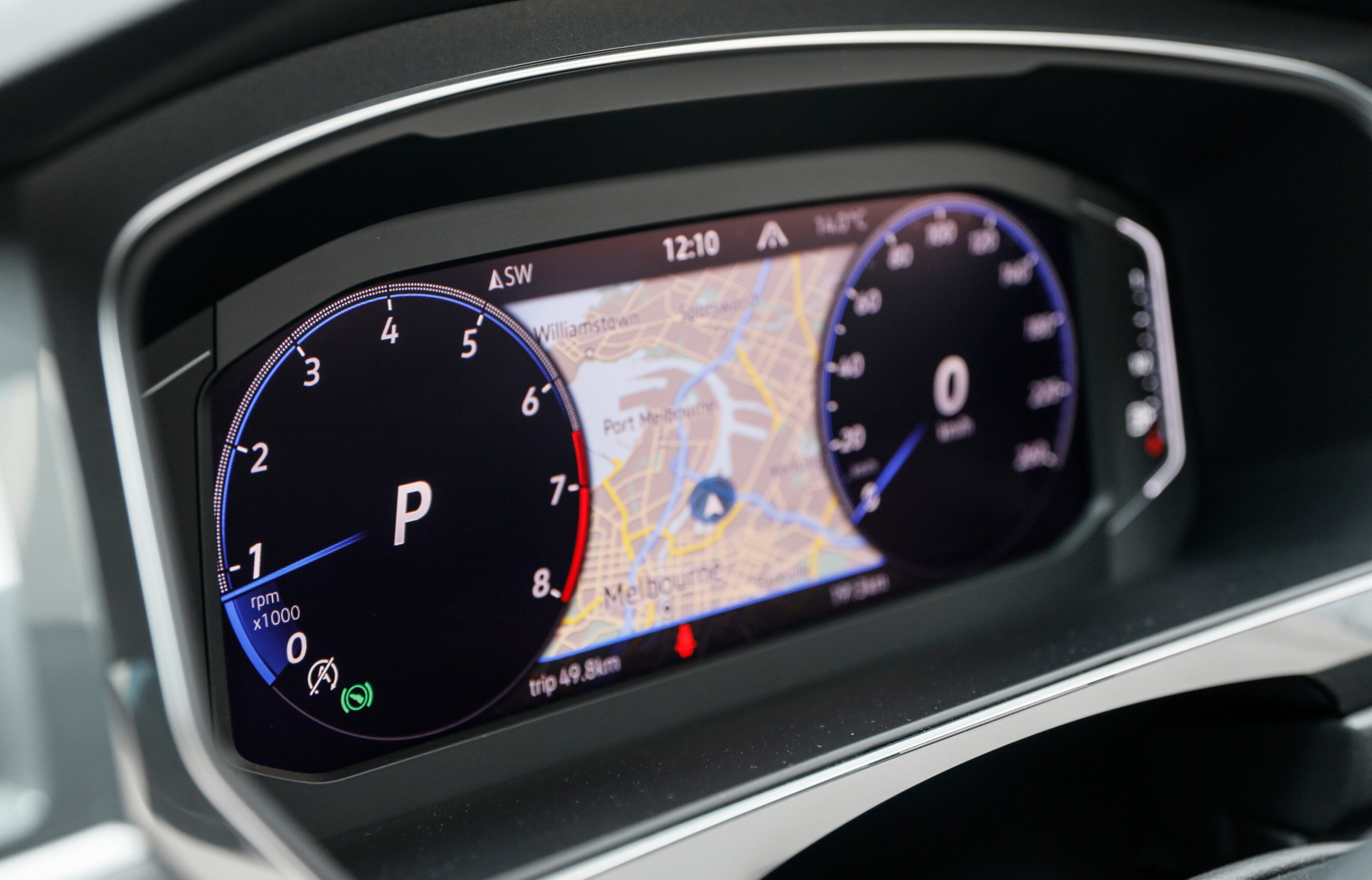
The leather D-shaped sports steering wheel is heated, with three settings, and has well laid-out buttons to operate the cruise control, audio, phone and digital cockpit buttons.
I say buttons but they are more like touchpads that can be pushed or swiped. While they do have a haptic feel, they can be a little fiddly while you’re driving and aren’t as good for eyes-off operation as physical switches.
The climate control system below the infotainment screen is also operated with touch-sensitive switches that work fine when you’re stationary, but sliding your finger along the fascia to adjust the fan speed is a lot more difficult while driving than with a traditional dial or slider.
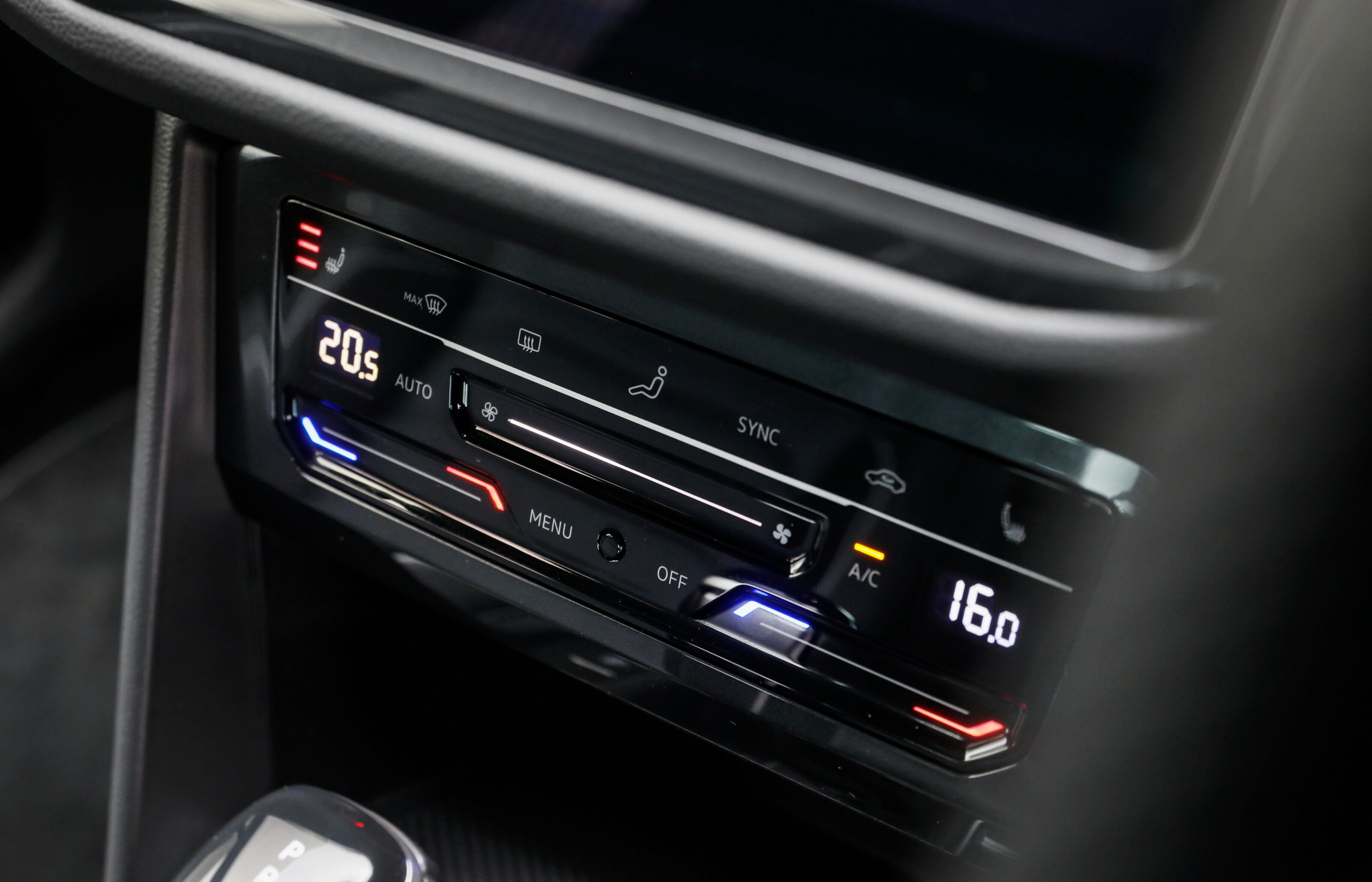
Volkswagen has thankfully retained a few physical buttons alongside the touchscreen to quickly access the menu, main screen and volume controls.
Once you’re in the infotainment menu, everything is well laid out and allows the user to find most functions with a single swipe.
Among these functions are wireless Apple CarPlay and Android Auto, which sync easily via Bluetooth. There is no wireless phone charger, which means you’ll have to plug in the phone anyway to keep it charged.
Like Mercedes-Benz, Volkswagen vehicles only come with smaller USB-C sockets now. There are two located next to a 12-volt socket in a nook in front of the gear selector where you can keep the phone and other small items such as keys.
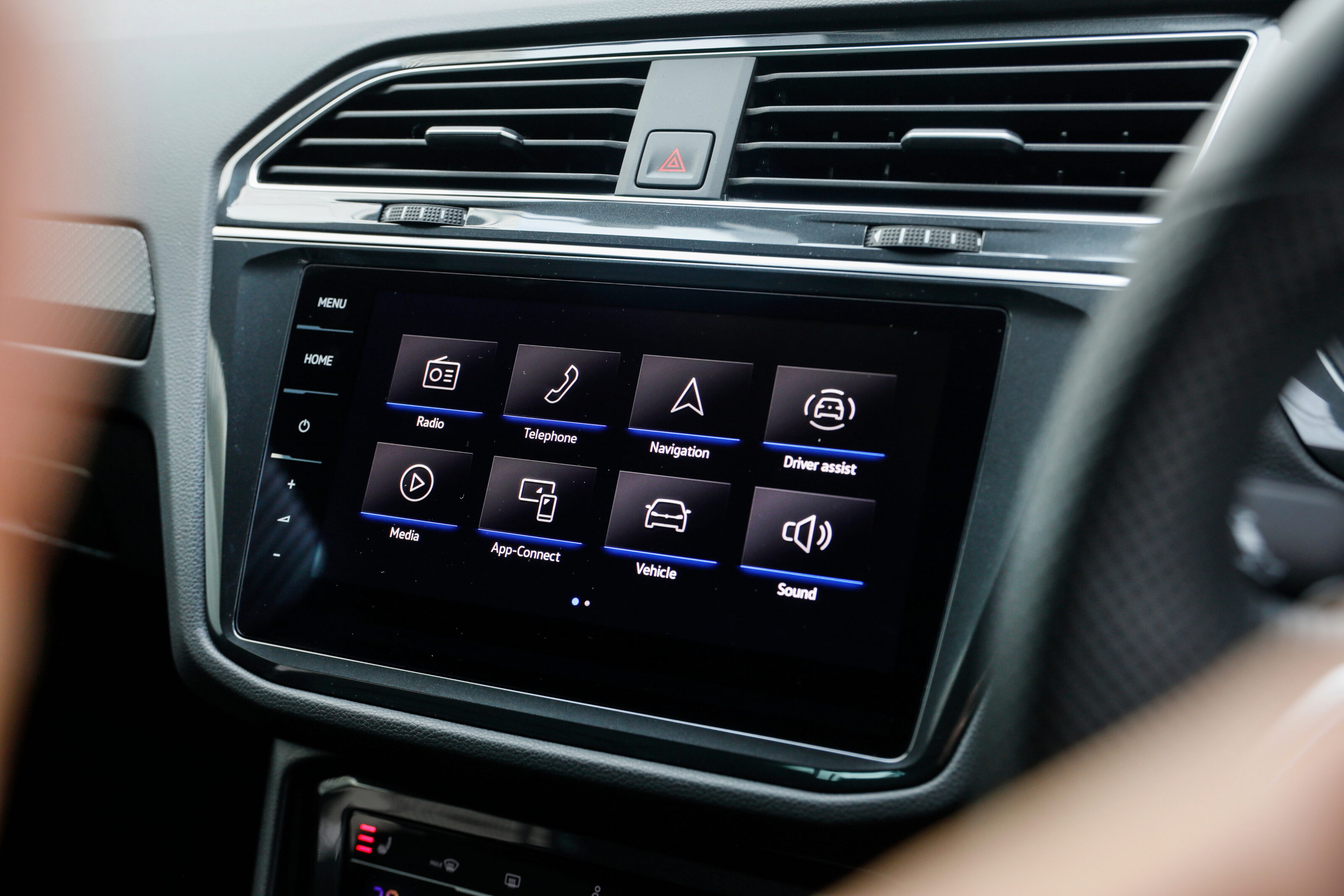
The centre console houses two other storage areas including a covered tray with fold-away cup holders and a deeper tub under the padded armrest. There is also a glovebox and deep door bins with the latter lined with felt, which helps prevent objects from sliding around or vibrating.
But wait, there’s more including a small pocket to put coins or keys to the right of the steering wheel, a bin with a pop-up lid in the middle of the dashboard, and two overhead pulldown storage hatches in which to place things like sunglasses or maps.
The dashboard has that crisp look that’s typical of VW models, and while the trim is rather monochromatic, the hi-res graphics on the displays provide plenty of visual interest.
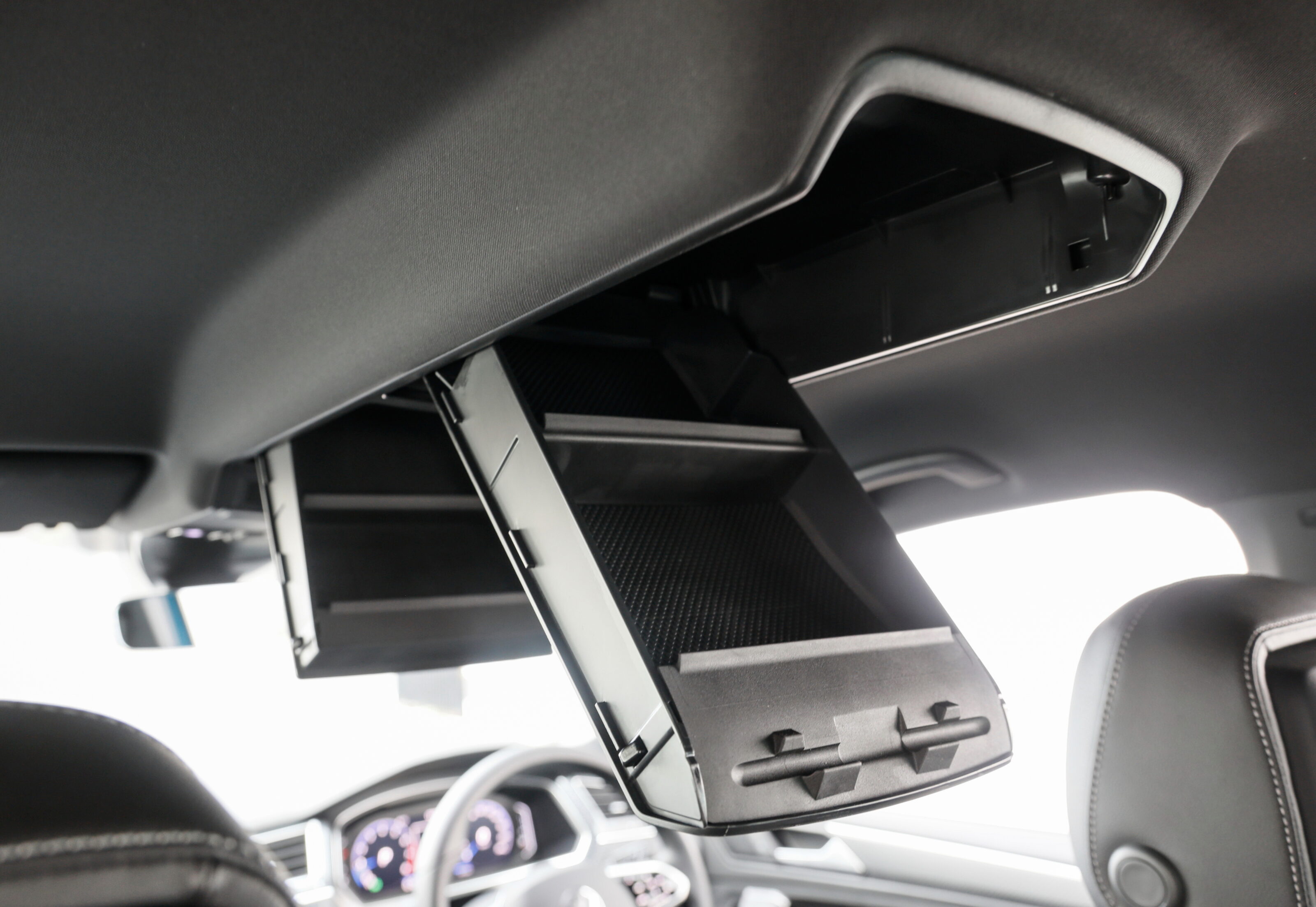
The monogrammed ‘R’ grey leather front sports seats have good side bolstering and under-thigh support but do feel a little firm and flat. That said, they do afford a good driving position that is helped by the steering wheel’s broad adjustment range.
Both front seats are heated and power-adjustable, the driver’s side also providing three position memory settings.
The rear seats are also firm, but comfortable enough and even the middle seat will easily accommodate an adult, which is a rarity these days.
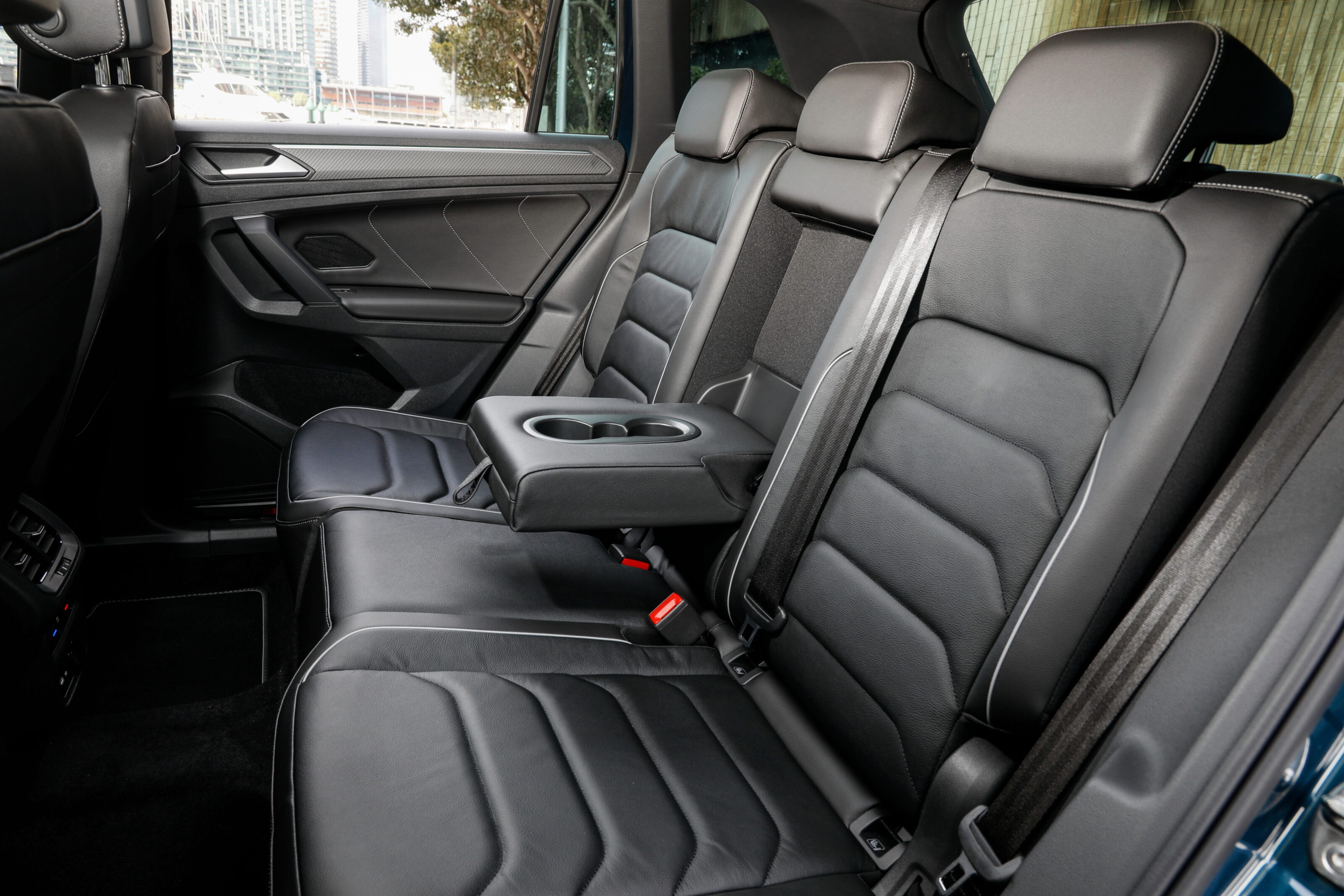
Rear-seat passengers benefit from a fold-down centre armrest with cup holders, deep door bins, a USB-C socket, 12-volt socket, HVAC controls and vents.
The rear bench sits a little higher than the front seats, which allows for good forward and side vision.
The 40:20:40 split backrest can be adjusted to recline a little or move forward to increase boot space, and you can also lower the boot floor by 75mm, which is one advantage of having a space-saver spare wheel.
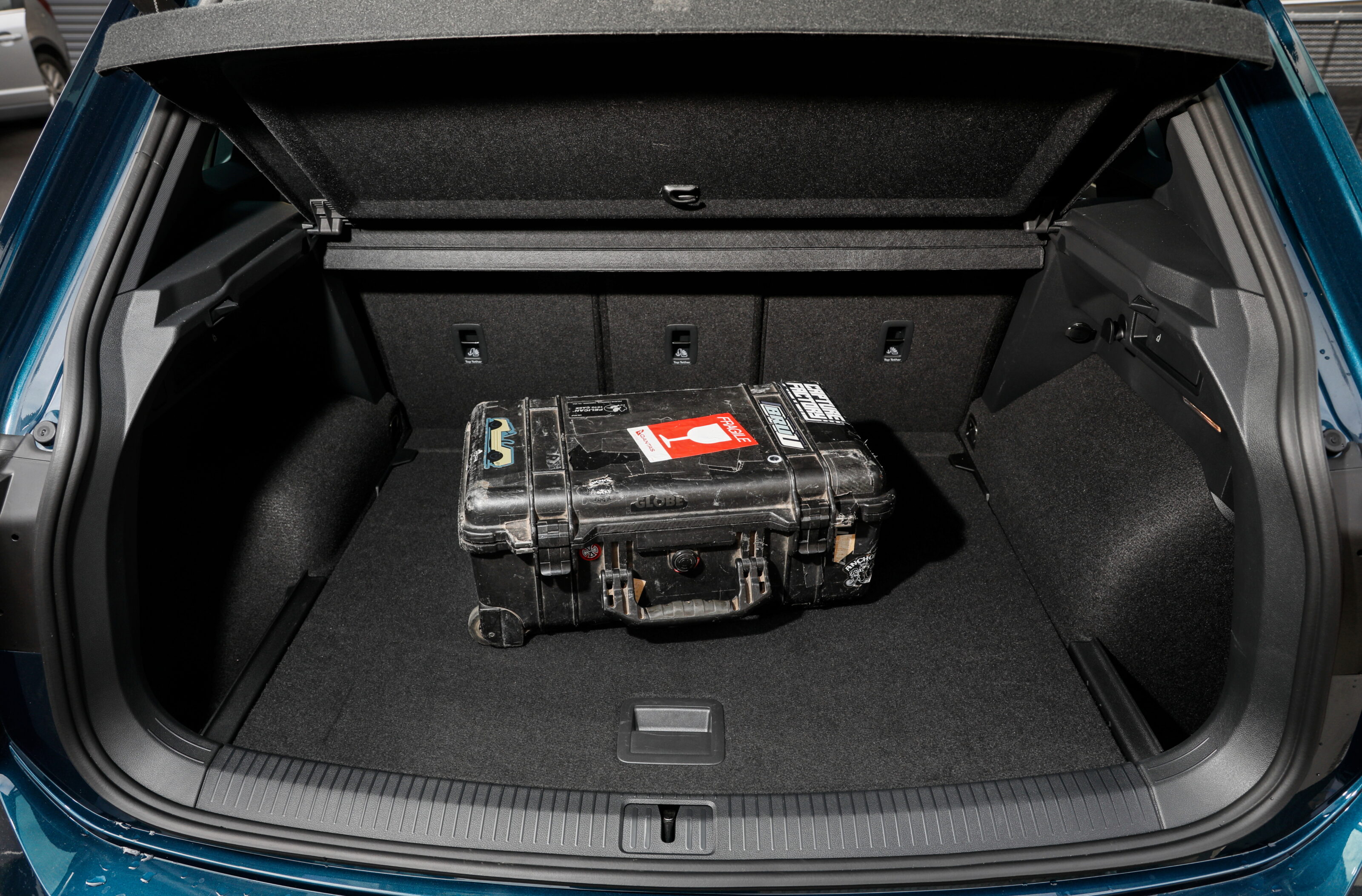
With the seats up in the standard position, boot space is a cavernous 615 litres, one of the most voluminous in the medium SUV category.
This translates to 850mm between the seatback and boot lip, 1000mm between the wheel arches and 460mm between the boot floor and parcel blind.
If you need to cart more, the Tiguan 162 TSI has a braked towing capacity of 2500kg and 750kg unbraked.
On the road
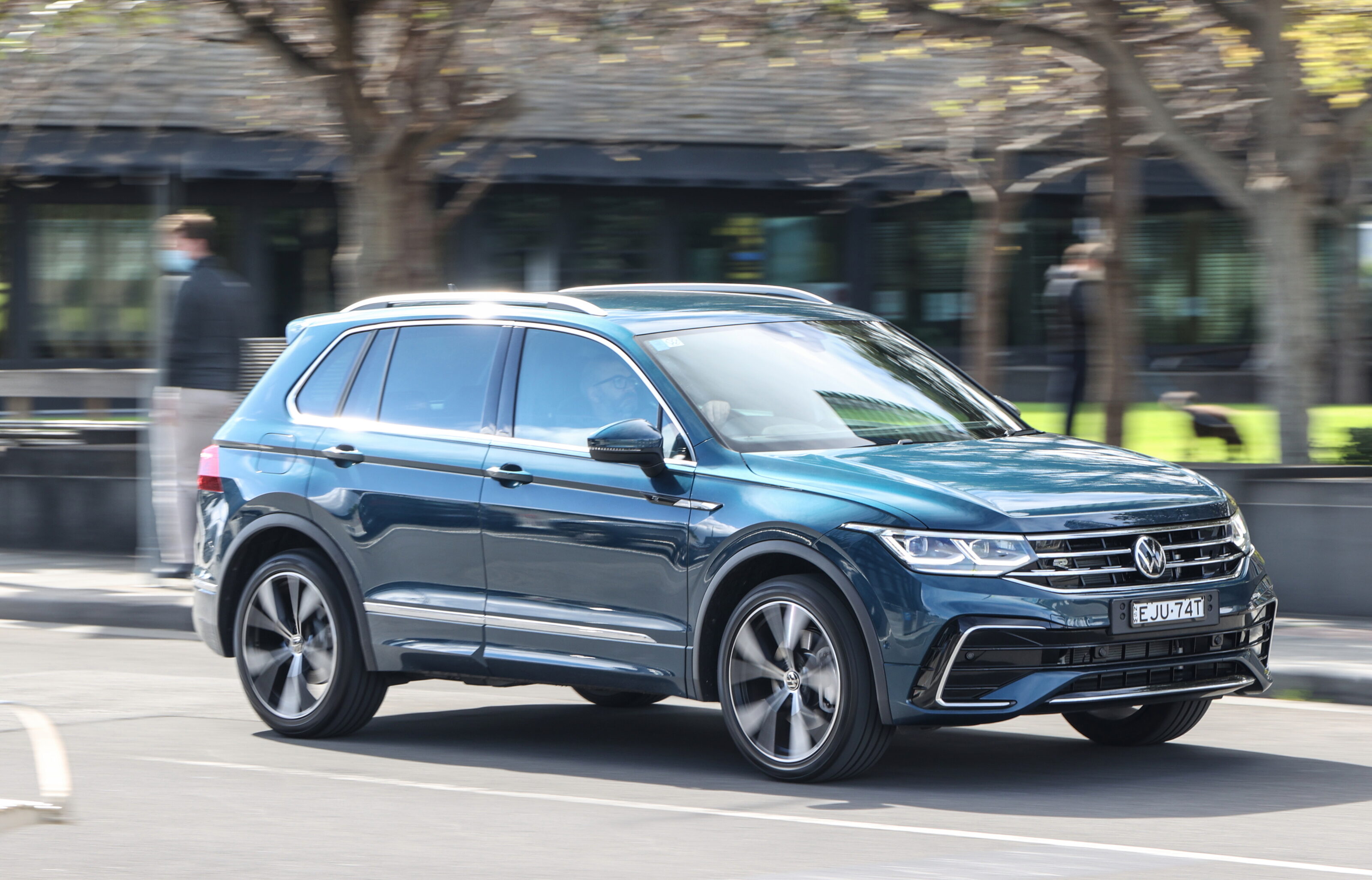
Until the arrival of the Tiguan R, this is the most powerful Tiguan in available in Australia and its punchy 162kW/350Nm 2.0-litre four-cylinder turbocharged petrol engine doesn’t disappoint.
It has some serious shove and can feel quite exhilarating when you put the foot down, especially in Sport mode, which ups the revs in each gear to overcome the low-rev lag associated with the seven-speed dual-clutch auto.
According to VW, it’s capable of a 7.0-second 0-100km/h sprint, though our man Alex Inwood managed 6.8-seconds using its launch control system (see the above video), which is just a half-second slower than the 183kW/370Nm Audi Q5 45 TFSI Sportback.
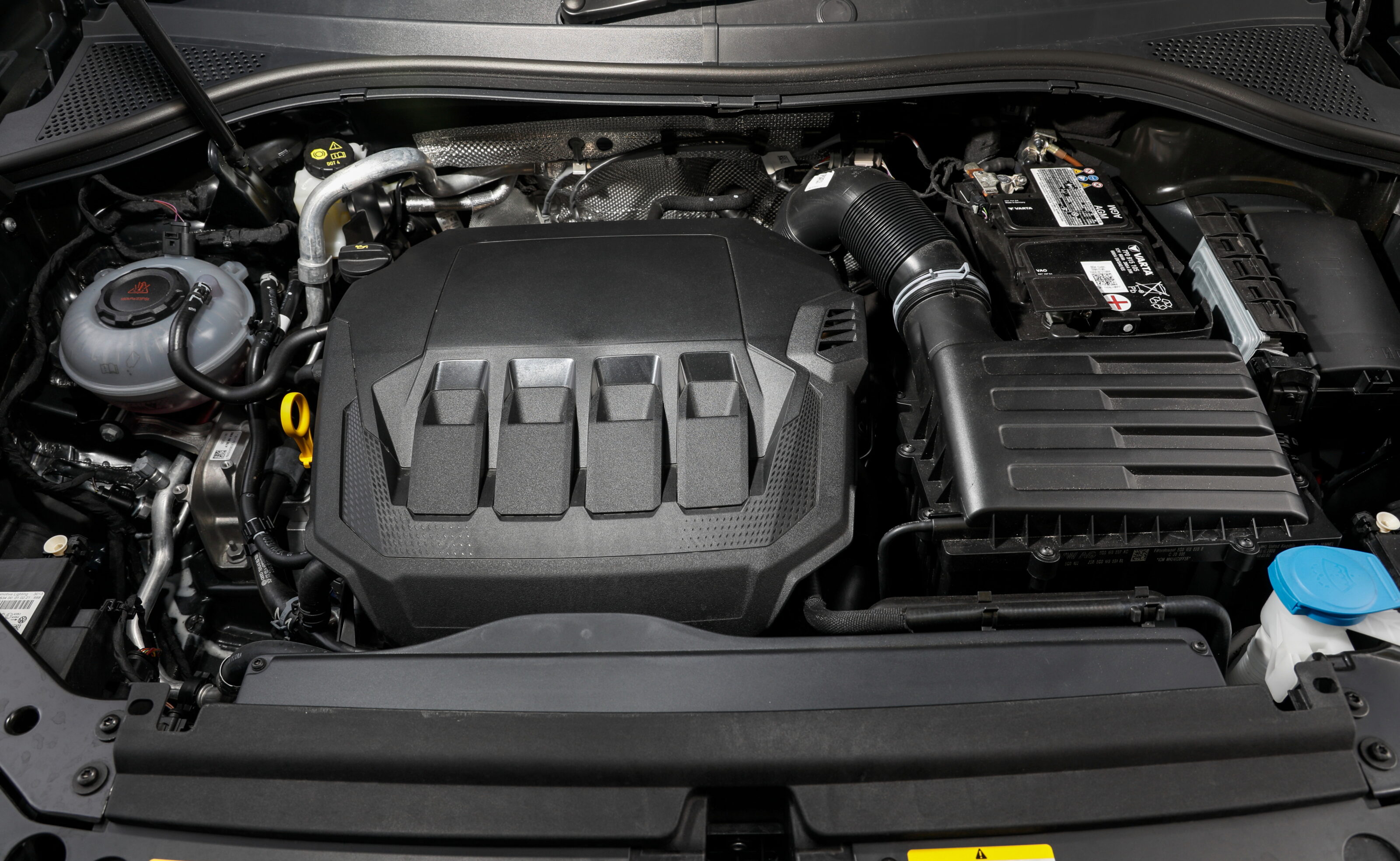
Indeed it feels incredibly quick, with that sensation aided by the gauges glowing red in Sport mode and an aggressive engine note when you reach about 4000rpm.
The Tiguan rides on Volkswagen’s MQB platform that underpins a range of vehicles including the Golf and as such it has surprisingly hatchback-like handling, which is further aided by the 4Motion all-wheel-drive system that can also be set to provide Snow and Off-road traction.
Sport mode also tightens the adaptive chassis control (ACC), or adaptive dampers, and firms up the steering for more performance-oriented ride and handling. The downside is that the ride can be overly firm, particularly through the rear multi-link suspension and low-profile Pirelli Scorpion rubber.
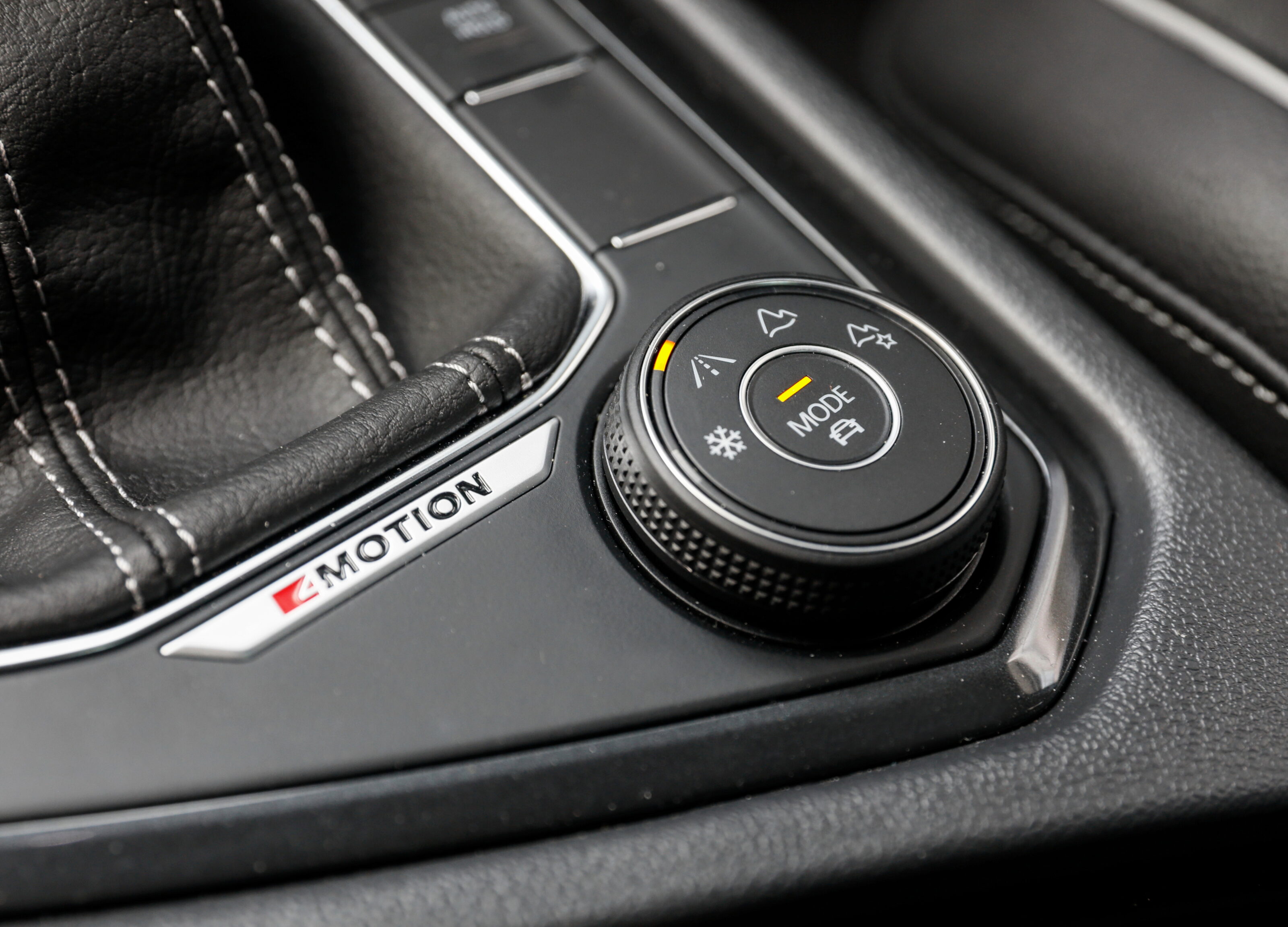
One way around this is to customise the vehicle settings so you can maintain the Sport performance with default Comfort damper settings using the Individual mode.
In full Comfort mode, the Tiguan is an excellent all-rounder that continues to offer driver enjoyment during the daily drive.
The progressive steering feels light and direct, making it good for negotiating tight spots, but tightens as you speed up for better accuracy.
The Tiguan rides on VW’s MQB platform that underpins the Golf and as such it has surprisingly hatchback-like handling.
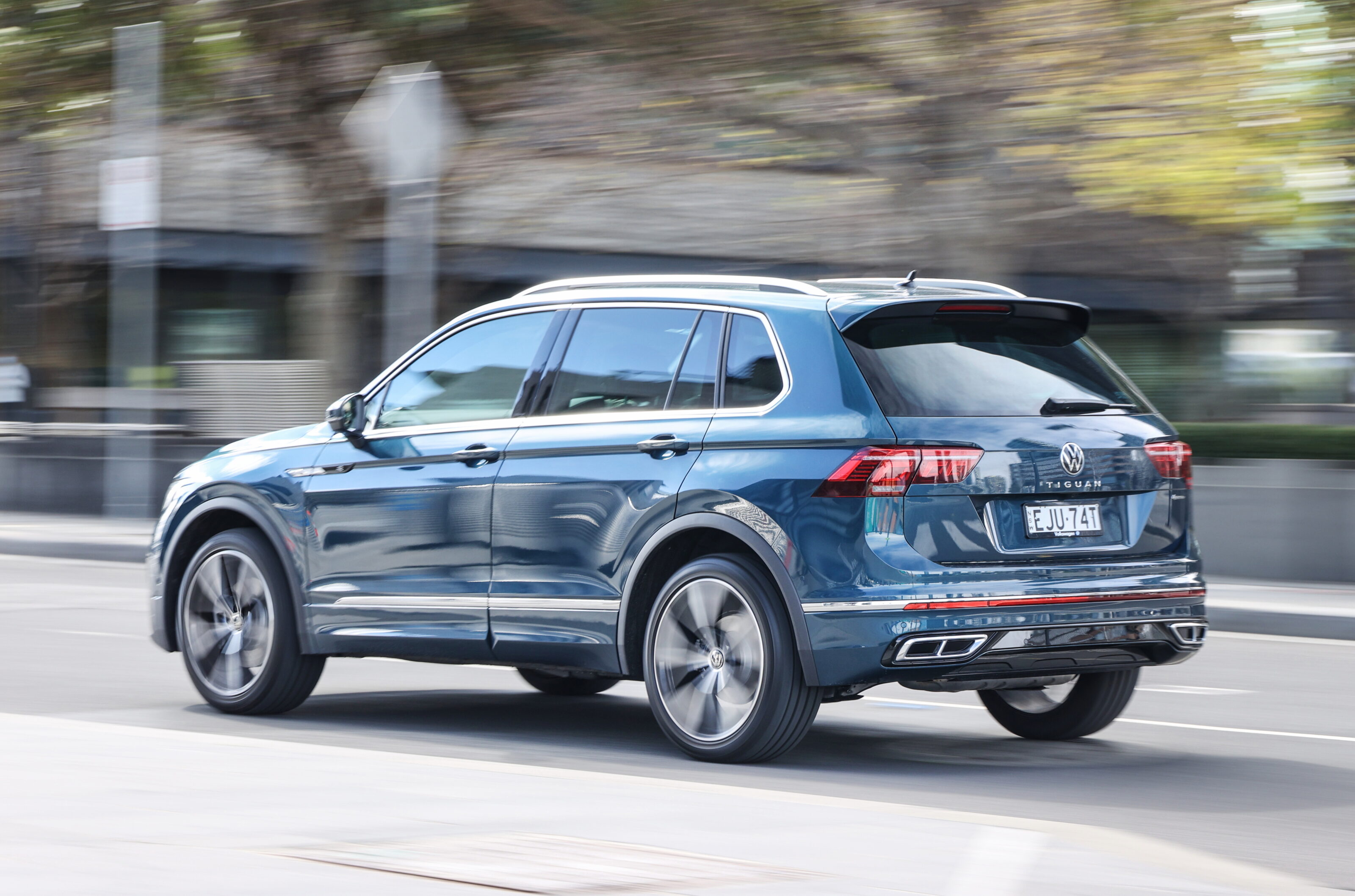
It’s one of the easier SUVs to park too, with excellent all-round vision and a host of aids including front and rear parking sensors and a surround-view camera.
If for some reason you still find getting into a particular parking spot difficult, you can engage Park Assist, enabling the Tiguan to virtually park itself at the touch of a button. All you need to do is apply the brakes.
In short, this is a great choice for anyone who may have to trade in a sporty hatch or sedan for something more practical without sacrificing much by way of driver enjoyment.
Ownership
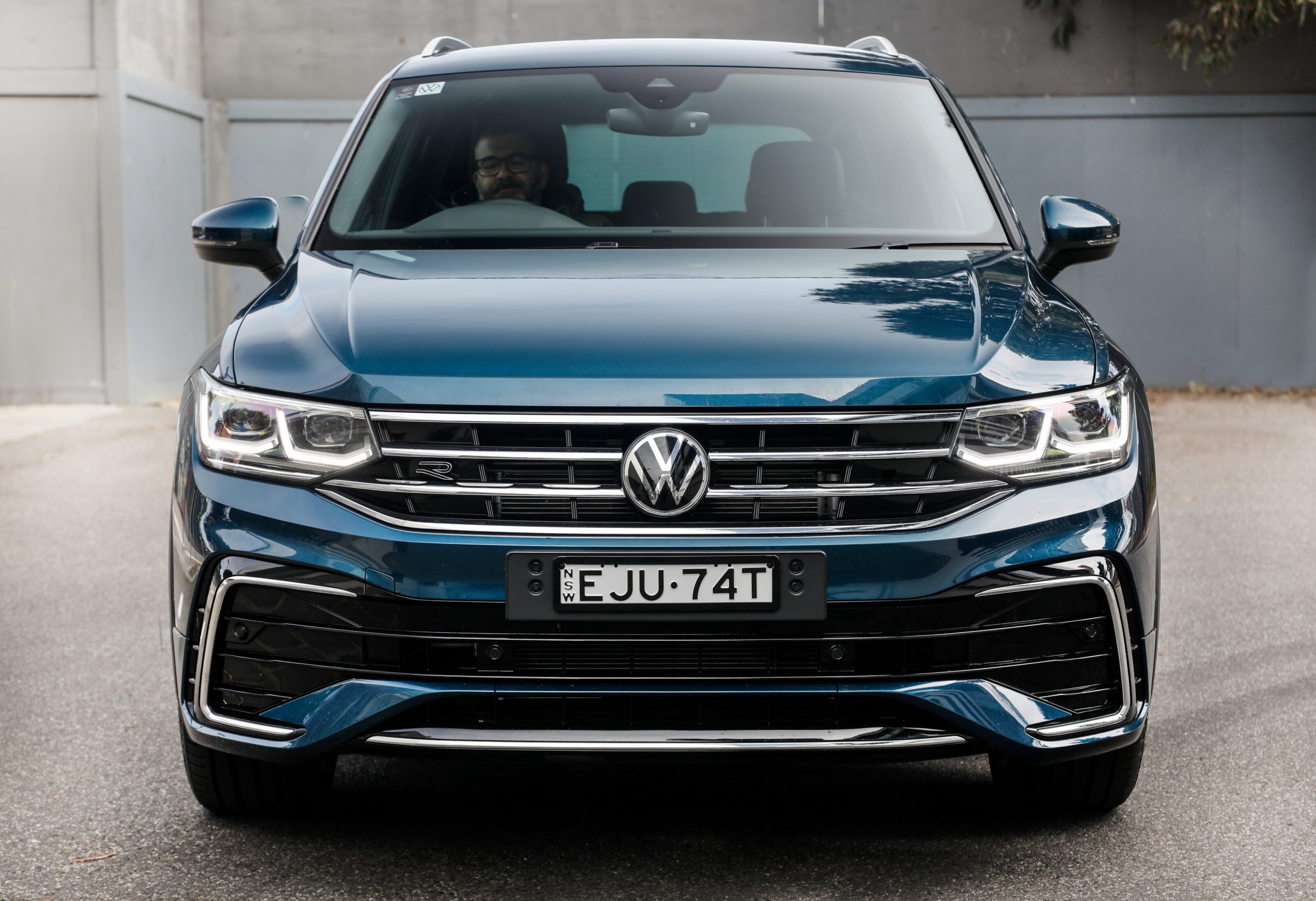
The Tiguan 162 TSI’s 2.0-litre turbo brings a not-too-frugal official combined fuel consumption of 8.5L/100km, which climbs beyond 10.0L/100km around town.
It’s covered by a five-year, unlimited-kilometre warranty and has 12-month/15,000km service intervals.
Each service at VW service centre costs $429 under the company’s Assured Service Pricing, or you can opt for three- or five-year ‘Care Plans’ for $1200 or $2400 respectively.
VERDICT
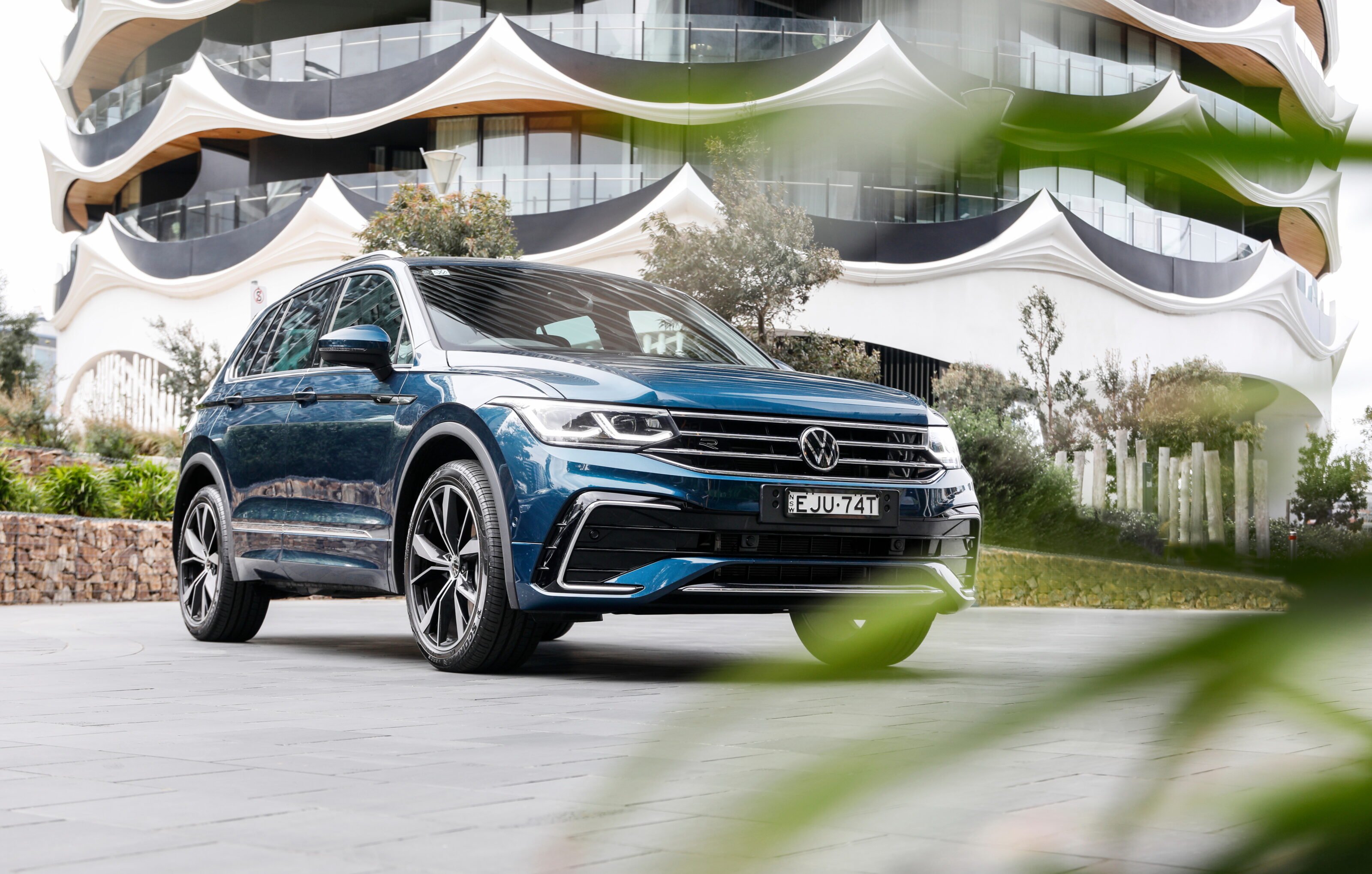
As well showing that practicality doesn’t need to come at the expense of driveability, the Tiguan 162 TSI draws on Volkswagen’s ability to provide viable alternatives to comparative premium models at a fraction of the price.
It’s about $20,000 less expensive than the likes of the Audi Q5 45 TFSI Quattro Sport and BMW X3 sDrive20i, but while they have about 20kW more in bragging rights, are no more fun to drive than this plucky VW.
2021 Volkswagen Tiguan R-Line specifications
Score breakdown
Things we like
- Looks great
- Performance and handling
- Big boot
- Cabin fit, features and finish
Not so much
- Fiddly touchpad controls
- Ride can be a little firm
- Fuel consumption


